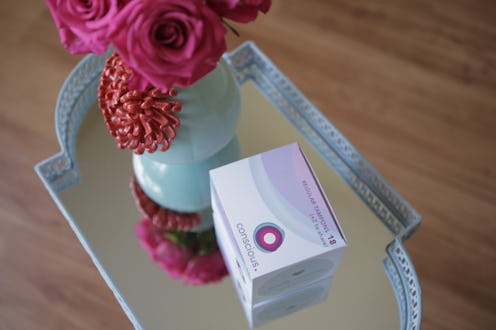People are just beginning to discuss one big problem those in poverty or in developing countries face: Lack of access to menstrual supplies. With increased awareness that some people's periods are an impediment to their daily lives, several companies that provide menstrual supplies to those in need have cropped up to solve this problem.
One study by UNICEF and Emory University found that 21 percent of girls in Sierra Leone and 30 percent of girls in Afghanistan had skipped school because they had their periods. Along with inadequate school bathrooms and paucity of information, lack of access to supplies is one major contributor to this issue. In the United States as well, menstruation poses a huge obstacle for homeless women, who are rarely donated pads or tampons because people don't think to do so and they're expensive.The Huffington Post estimates that those who use tampons will pay nearly $2,000 for them over their lifetimes.
Realizing that the ability to purchase pads, tampons, and other menstrual products should be a right, not a privilege, some people fortunate enough to afford them and companies that make them are finding ways to give back. Here are some companies that have set out to make menstrual supplies more widely available and consequently work toward gender equality in education.
1. Be Girl
Be Girl's EmpowerPanty underwear line consists of panties in different cuts and colors with pouches for liners that can be reused or disposed of. Be Girl follows a model similar to TOMS shoes: Whenever you buy a pair, another is sent to a girl in a developing country who might otherwise not be able to go to school during her period. Though Be Girl also provides boxer briefs for men who want to support women in developing countries, the products are gendered — "the universal experience of menstruation creates an informal bond among women and girls," reads the line's Kickstarter page, which calls the period panties "feminine" — unlike its competitor Thinx, which markets its underwear to "people with periods." Though the situation in other countries may be different (trans people are less visible in Africa, for example), it might be helpful to provide such products to trans men, at least in the United States, where trans people disproportionately face poverty and homelessness.
2. Conscious Period
Conscious Period's organic tampons not only use materials that are safe to put in your body but also follow a model similar to Be Girl's, providing a box of organic pads to a woman in need for every box of tampons purchased. The company's IndieGogo page states that homeless women often prefer pads because they don't always have access to private places to change tampons. Again, especially since this initiative is focused on a country where trans people live in homelessness and poverty, it would also be great to see such efforts help trans and non-binary people.
3. AFRIpads
AFRIpads' menstrual kits, which include reusable maxi pads, super maxi pads, and storage bags, are sold in Uganda and distributed to people who need them in partnership with NGOs and relief agencies. They are also manufactured in Uganda with a 90 percent female staff, so they not only help women in poverty but also give women jobs so that fewer are in need in the first place.
4. Lunapads
Lunapads sells a variety of reusable menstrual supplies including DivaCups and their own Lunapads and Lunapanties. In addition to distributing environmentally friendly products, Lunapads started the Pads4Girls program in 2000 to provide cloth pads and period underwear to girls in developing countries. Like Be Girl, it gives girls products that last for years so that their periods will never have to interfere with their educations.
Images: Conscious Period/IndieGogo; Be Girl Inc./Kickstarter; AFRIpads, Lunapads.com/Facebook
